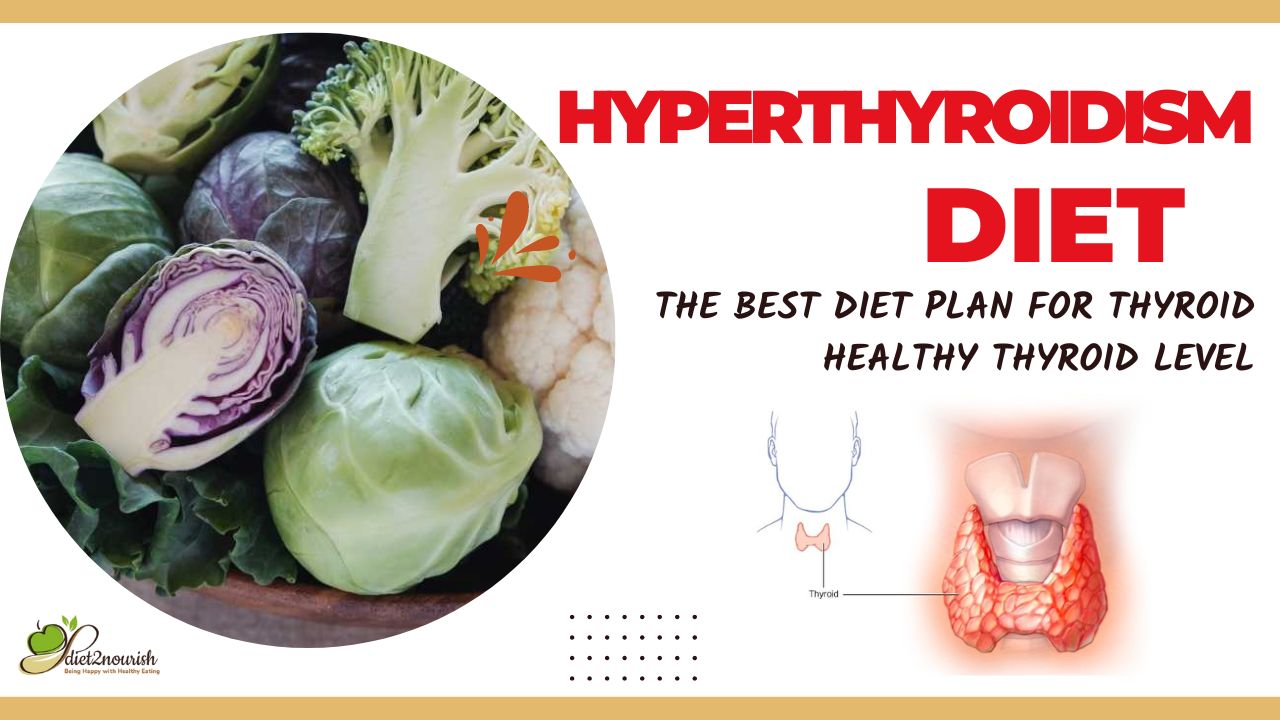Hyperthyroidism is a condition in which the thyroid gland produces too much thyroid hormone, leading to an overactive metabolism. While medication and other treatments are often necessary to manage hyperthyroidism, diet can also play a role in supporting thyroid function and reducing symptoms.
Here are some dietary recommendations for individuals with hyperthyroidism diet
- Avoid Iodine-rich foods: Iodine is a mineral that is important for thyroid function, but too much iodine can worsen hyperthyroidism symptoms. Foods high in iodine include seaweed, seafood, dairy products, and some fortified foods. It is important to work with a healthcare provider or dietitian to determine an appropriate level of iodine intake based on individual needs.
- Limit caffeine and stimulants: Caffeine and other stimulants can exacerbate hyperthyroidism symptoms, such as nervousness, irritability, and rapid heart rate. It is recommended to limit or avoid caffeinated beverages, such as coffee, tea, and energy drinks.
- Choose complex carbohydrates: Carbohydrates provide energy for the body, but simple carbohydrates (such as sugar and refined grains) can cause blood sugar fluctuations and worsen hyperthyroidism symptoms. Choosing complex carbohydrates, such as whole grains, fruits, and vegetables, can help to stabilize blood sugar levels and provide sustained energy.
- Increase protein intake: Protein is important for maintaining muscle mass and supporting thyroid function. Good sources of protein include lean meats, poultry, fish, beans, and tofu.
- Eat small, frequent meals: Eating small, frequent meals throughout the day can help to maintain energy levels and stabilize blood sugar. It can also reduce the risk of overeating, which can lead to weight gain (a common symptom of hyperthyroidism).
- Stay hydrated: Adequate hydration is important for overall health and can also support thyroid function. Aim to drink at least 8 cups of water per day, and more if engaging in physical activity or in hot weather.
- Consider supplements: Some supplements may be helpful for supporting thyroid function and reducing hyperthyroidism symptoms. It is important to speak with a healthcare provider or registered dietitian before taking any supplements, as some may interact with medications or other health conditions. Some supplements that may be beneficial for hyperthyroidism include selenium, zinc, and L-carnitine.
In addition to these dietary recommendations, there are a few other lifestyle factors that can support thyroid health:
- Manage stress: Stress can worsen hyperthyroidism symptoms and can also lead to overeating or unhealthy food choices. Engaging in stress-reducing activities, such as meditation, yoga, or deep breathing exercises, can help to manage stress and support thyroid health.
- Get regular exercise: Regular physical activity can support overall health and can also help to manage hyperthyroidism symptoms, such as fatigue and weight gain. It is important to speak with a healthcare provider before beginning an exercise program, as some individuals with hyperthyroidism may need to modify their exercise routine.
- Get enough sleep: Adequate sleep is important for overall health and can also support thyroid function. Aim to get at least 7-8 hours of sleep per night, and establish a regular sleep schedule to support healthy sleep habits.
In summary, a diet rich in complex carbohydrates and protein, and low in iodine and caffeine, can help to support thyroid function and reduce hyperthyroidism symptoms. It is important to work with a healthcare provider or registered dietitian to develop an individualized diet plan based on individual needs and goals. In addition to dietary recommendations, managing stress, getting regular exercise, and getting enough sleep can also support thyroid health and overall wellbeing.
